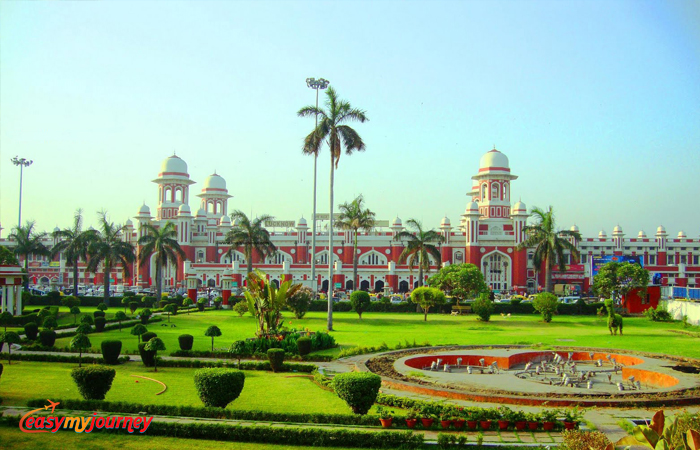Location : Right in the heart of the city
Ideal Time to Visit : Anytime round the year, 10:00 AM to 5:00 PM, Except Friday
Attraction : Artifacts, Bronzes and Busts
The Archaeological Museum of Sarnath is one of the most famous museums of its kind in entire South-Asia. Locally known as Sarnath Museum, Archeological Museum of Sarnath is a splendid building built early this century and stands adjacent to the historical ruins. The museum contains a large collection of sculptures that stands testimony to the fervent artistic and religious activity at Sarnath for more than a thousand years.
The first sculpture to be encountered in the entrance hall is a huge capital (2.31 meters in height) that once crowned a freestanding pillar amidst the Sarnath ruins. The Lion capital is made of pale yellowish-gray speckled sandstone, and has been burnished so well that its polished surface still shines. The capital has four lions seated back and their faces gaze towards the four cardinal directions that they protect. Below, on the abacus, are four wheels, the emblems of the law of dharma (spiritual movement and progress). The Dharmachakra wheel is also the sign of Sarnath, for it is here that the Buddha set the spiritual wheel in motion by showing people the way to truth and enlightened living. Separating the wheels on the capital base are symbolic attributes which the devotee should acquire: the patient devotion of the bull, the trustworthy strength of an elephant, the fearless power of the lion, matched by the swiftness of the horse. This lion capital with its message of peace and dedication was chosen as the emblem of the Indian Republic and is to be found on all government documents and on all Indian currency.
Of other Buddhist remains there is an impressive and amazingly beautiful, life-size standing Bodhisattva and a delicate image of the Bodhisattva with a lotus and yet another bronze sculpture showing the Bodhisattva with multiple arms. The museum at Sarnath also houses an excellent collection of figures and sculptures from the Mauryan, the Kushana and the Gupta periods. Prominent of them is the earliest Buddha image found at Sarnath and many images of Hindu Gods dating from the 9th to 12th centuries

